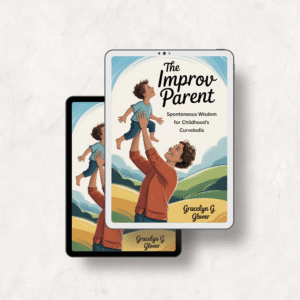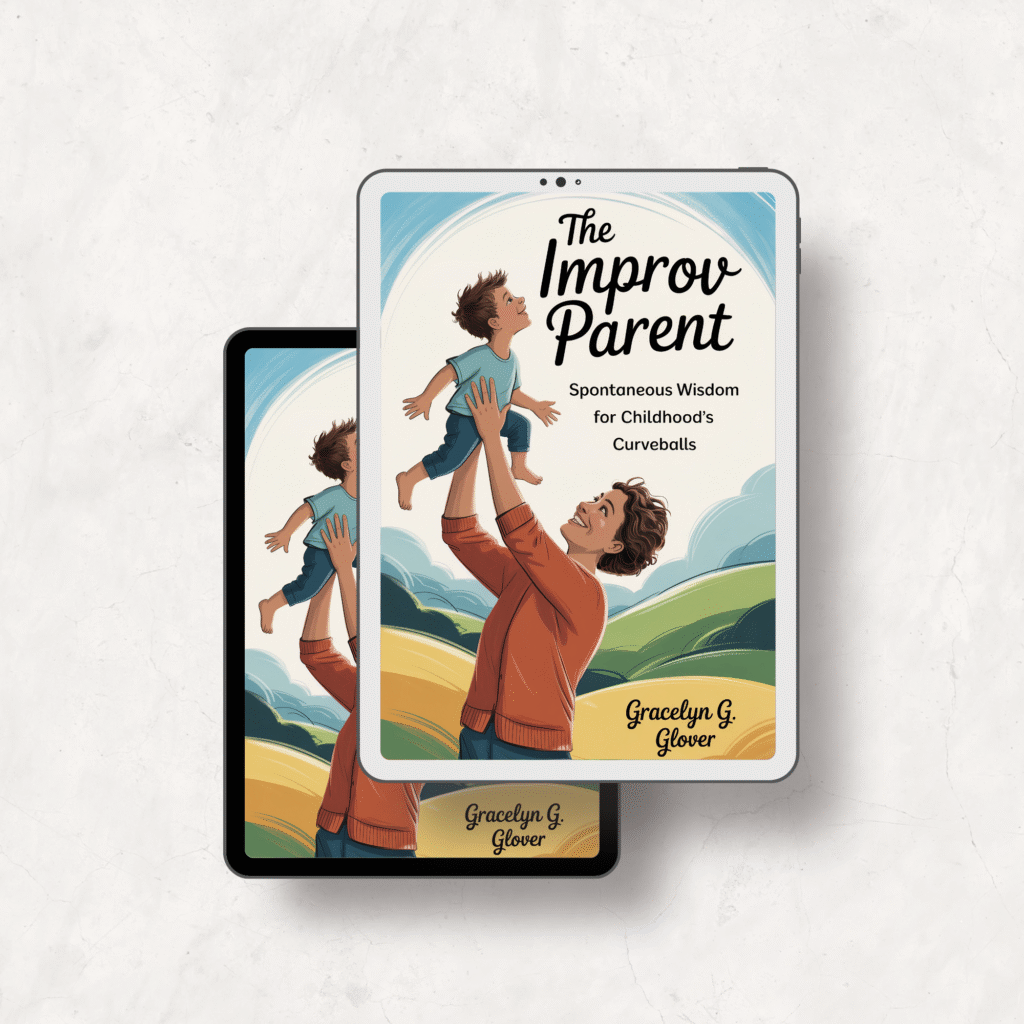The Improv Parent Book Review – Complete Guide to Spontaneous Parenting with Improvisational Techniques

Transform your parenting approach with improv parenting techniques that turn daily challenges into connection opportunities. Every parent faces those unpredictable moments when children throw curveballs that test our patience and creativity. “The Improv Parent: Spontaneous Wisdom for Childhood’s Curveballs” offers a revolutionary approach to flexible parenting that embraces spontaneity rather than fighting it. Unlike traditional rigid parenting methods, this innovative guide teaches you improvisational parenting techniques borrowed from theater to build stronger parent-child relationships while fostering emotional resilience in your family.
This comprehensive parenting resource empowers you to respond creatively to tantrums, sibling conflicts, and unexpected behavioral challenges. By learning to say “Yes-And” instead of “No-But,” you’ll discover how spontaneous parenting creates more harmonious family dynamics while teaching children valuable life skills like adaptability and emotional regulation.
What You’ll Discover
- Master the “Yes-And” Technique: Learn how to transform power struggles into collaborative problem-solving opportunities using proven improvisational parenting methods
- Build Emotional Resilience in Children: Discover practical strategies for helping your child develop coping skills and emotional intelligence through creative parenting approaches
- Handle Tantrums with Confidence: Overcome meltdowns and emotional outbursts using flexible parenting techniques that connect rather than control
- Navigate Sibling Conflicts Peacefully: Transform rivalry into cooperation using improv parenting strategies that focus on relationship-building over punishment
- Develop Creative Boundaries: Learn to maintain structure while embracing spontaneous parenting moments that strengthen family bonds
- Practice Sustainable Self-Care: Discover how to maintain your wellbeing while staying responsive to your children’s needs through balanced parenting techniques
Why This Book Matters
Traditional parenting advice often focuses on controlling behavior through rigid rules and consequences, but improvisational parenting techniques offer a more effective path forward. This book addresses the core challenge every parent faces – how to stay connected with your child during difficult moments while teaching valuable life skills. The author’s expertise in both theater and child development creates a unique framework that transforms parenting challenges into growth opportunities for the entire family.
By embracing flexible parenting strategies, you’ll model adaptability and creative problem-solving for your children. These spontaneous parenting skills become essential tools for raising resilient, emotionally intelligent children who can navigate life’s uncertainties with confidence. The practical applications make this approach accessible for busy parents seeking immediate improvements in family dynamics.
Key Features
This comprehensive ebook spans multiple chapters covering improvisational parenting techniques, emotional regulation strategies, and creative conflict resolution methods. Available as an instant digital download, you’ll receive immediate access to practical exercises, real-world scenarios, and step-by-step implementation guides. The format allows for easy reading on any device, with printable worksheets for hands-on practice. Also available as audiobook on Google Play Books and Spotify for convenient listening during commutes, workouts, or while managing household tasks.
Frequently Asked Questions
How do improvisational parenting techniques work with strong-willed children?
Improv parenting techniques are particularly effective with strong-willed children because they honor the child’s autonomy while providing structure. The “Yes-And” approach validates their perspective before redirecting energy constructively, reducing power struggles and building cooperation through connection rather than control.
Can flexible parenting strategies maintain necessary boundaries and discipline?
Absolutely! Spontaneous parenting doesn’t mean abandoning boundaries – it means holding them with warmth and connection. The book teaches how to maintain consistent values while adapting your approach based on circumstances, creating “flexible boundaries” that teach rather than simply control behavior.
Do these improvisational parenting methods work for children with special needs?
Yes, these techniques are highly adaptable for children with various needs. The emphasis on responsiveness, creativity, and emotional regulation makes improv parenting particularly valuable for neurodivergent children who benefit from individualized approaches and patient, connected responses to challenging behaviors.
Get Your Copy Today
Transform your parenting journey with this comprehensive guide to improvisational parenting techniques. Available for instant download at just $6.99, this ebook provides exceptional value compared to expensive parenting courses or therapy sessions. Also available as audiobook on Google Play Books and Spotify for busy parents. Purchase your copy through all major ebook retailers including Apple Books, Barnes & Noble, and Kobo to begin building stronger family connections through spontaneous parenting strategies today.
Watch the Video Review

